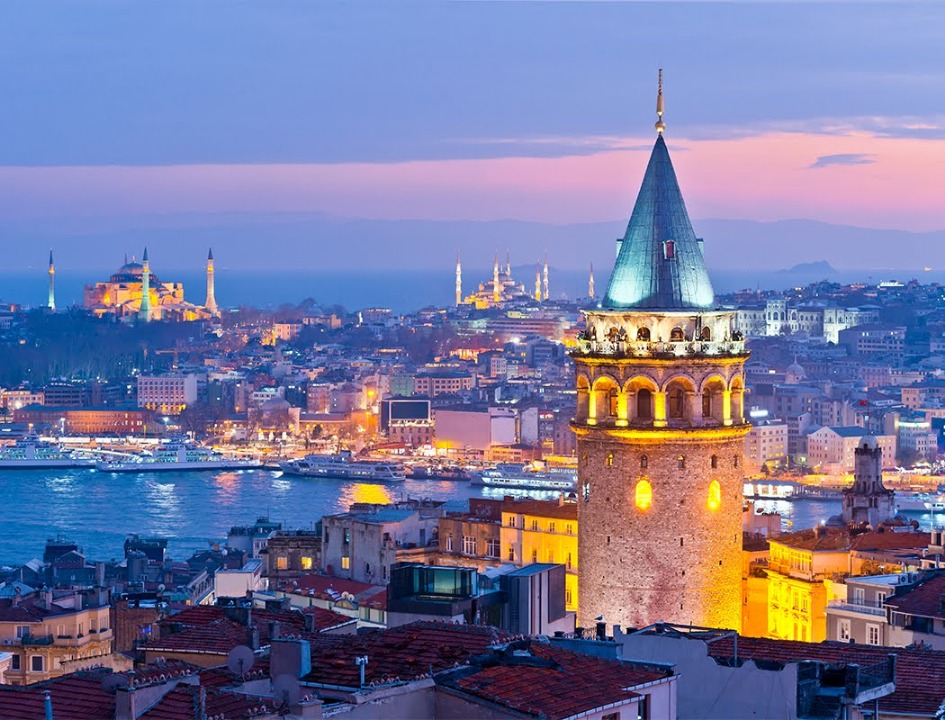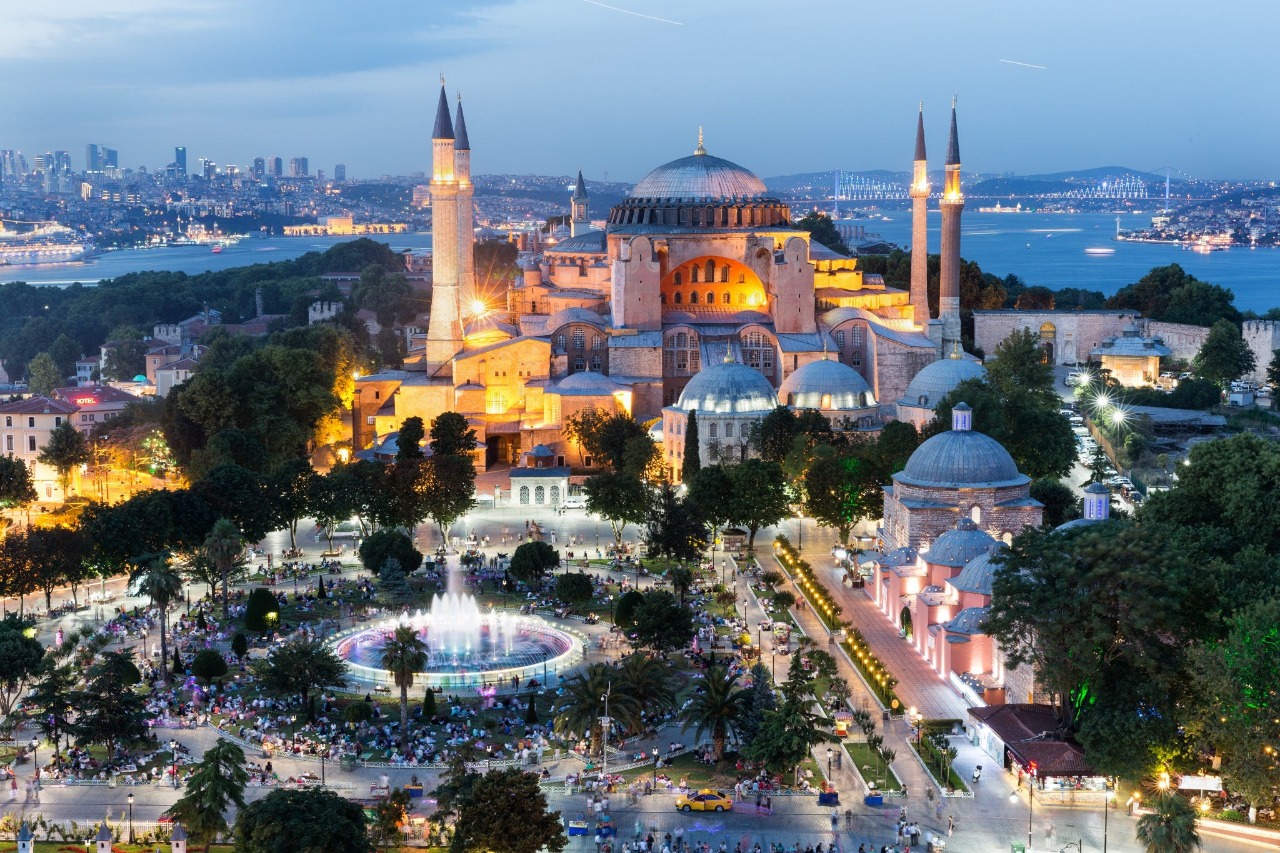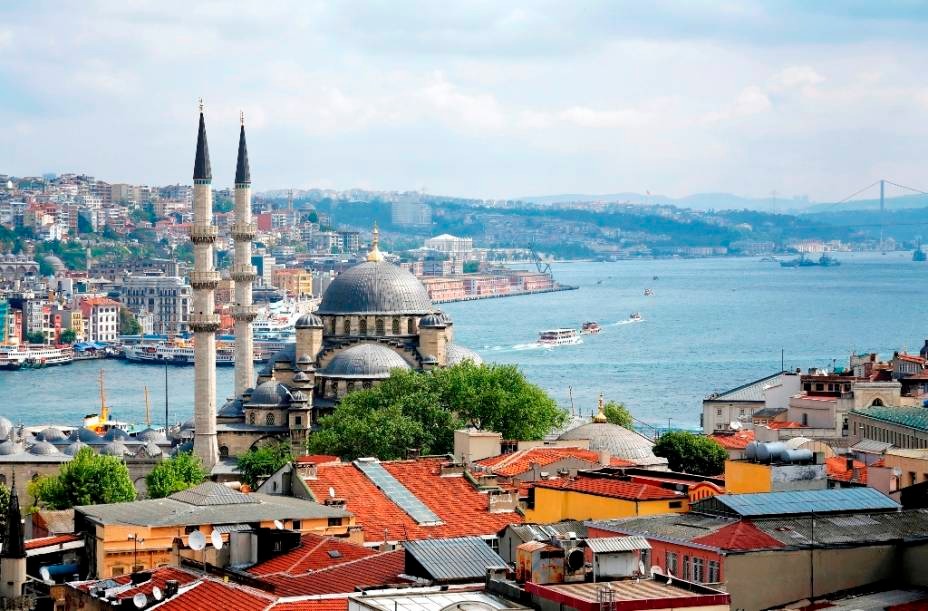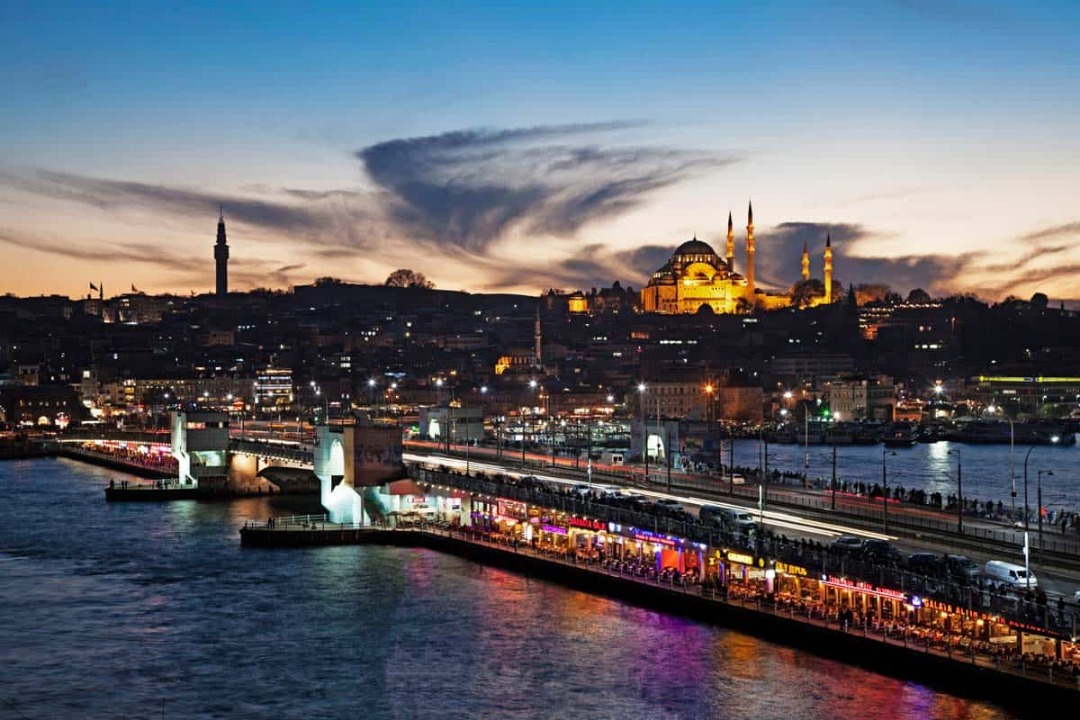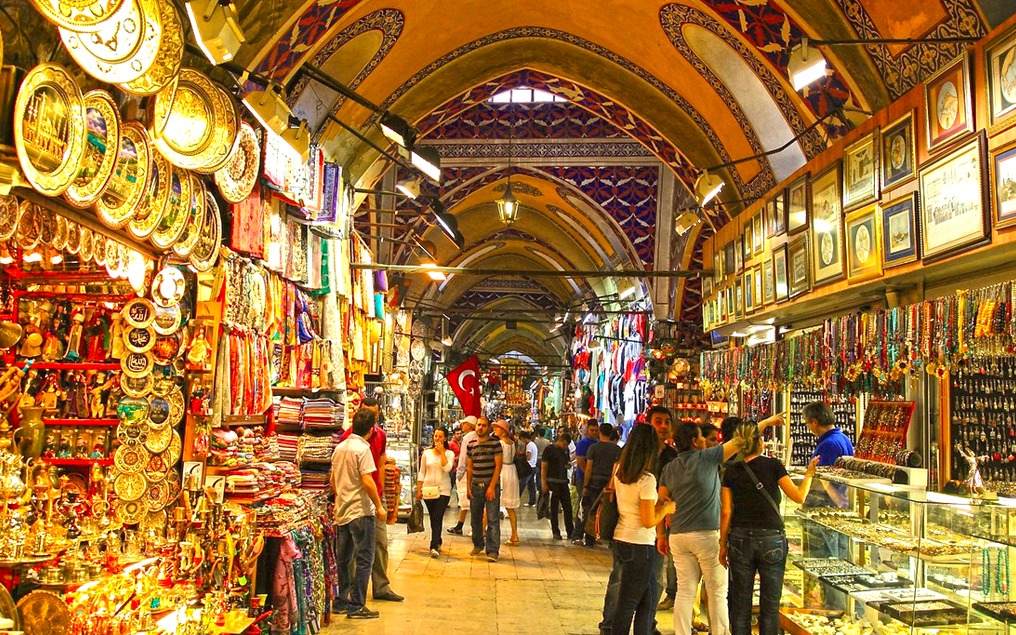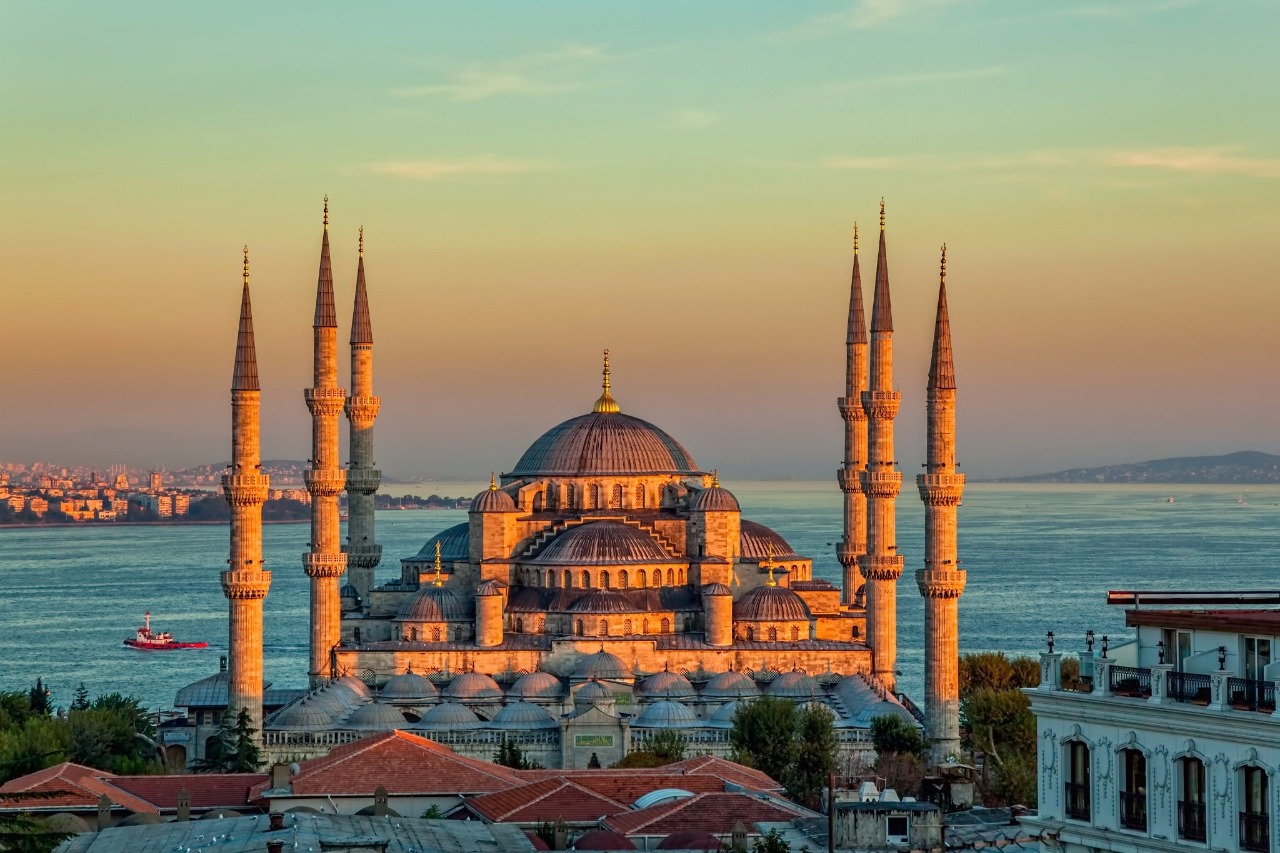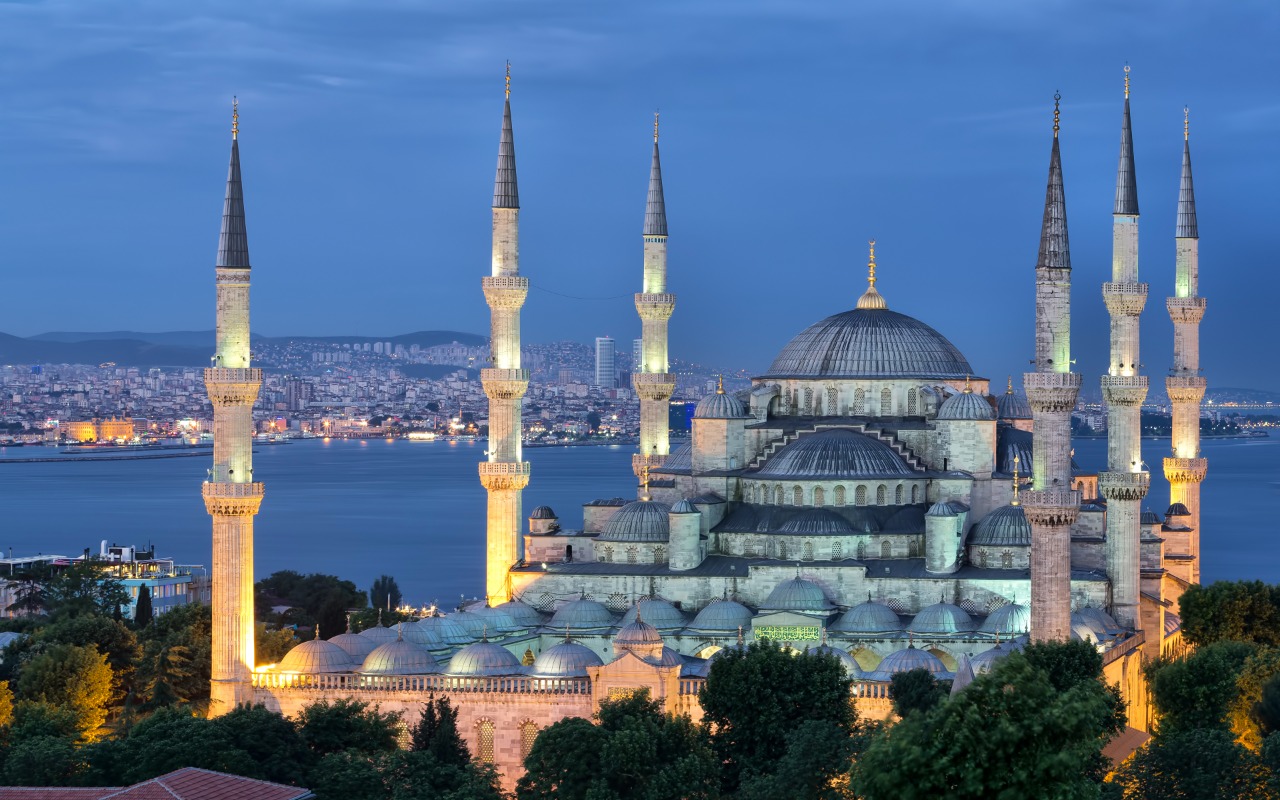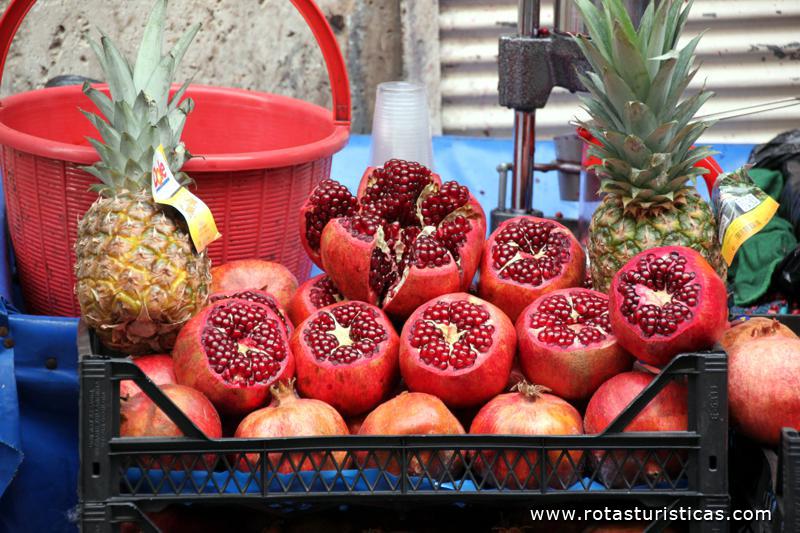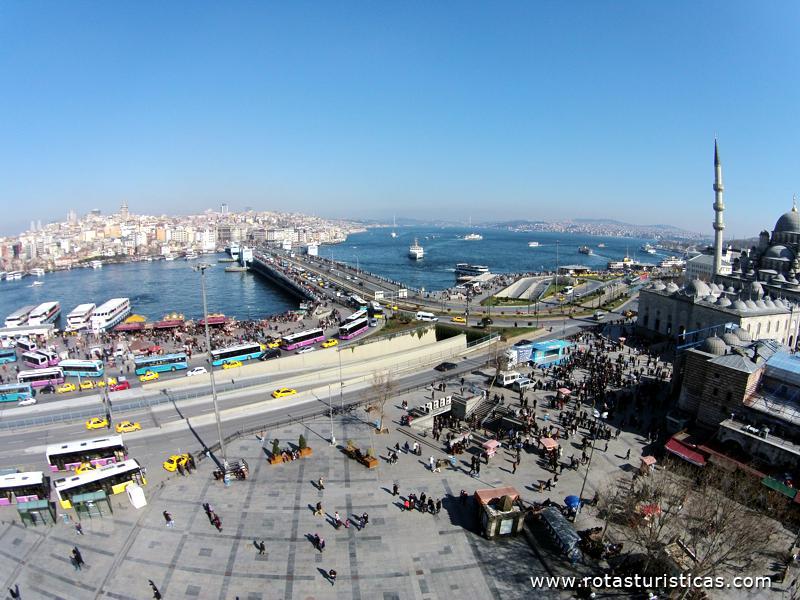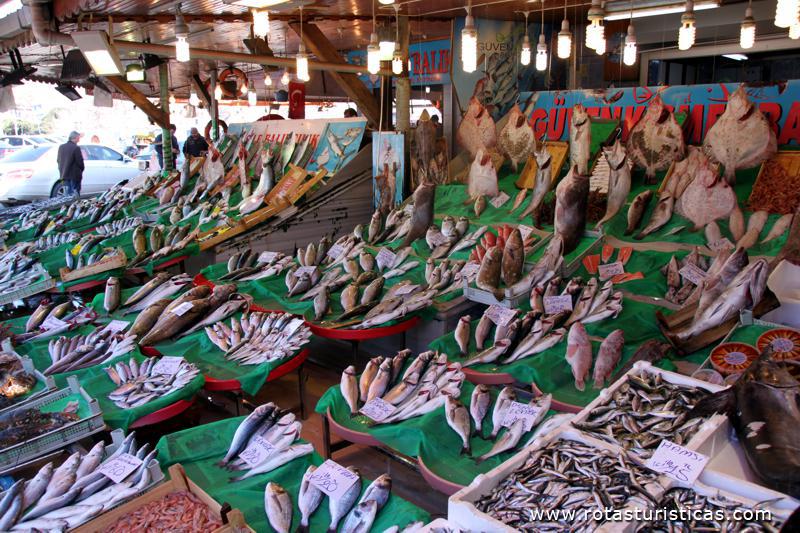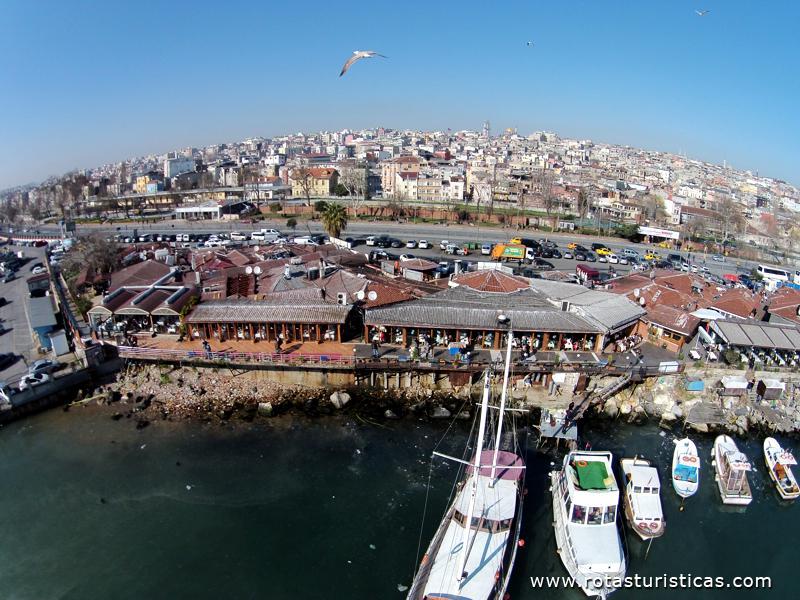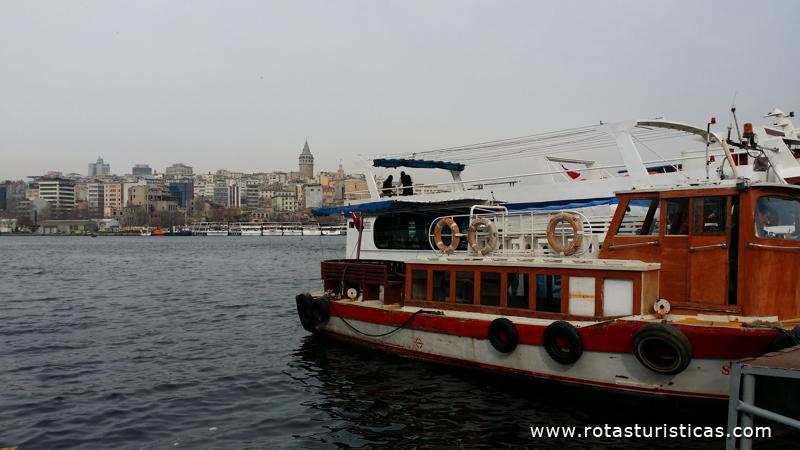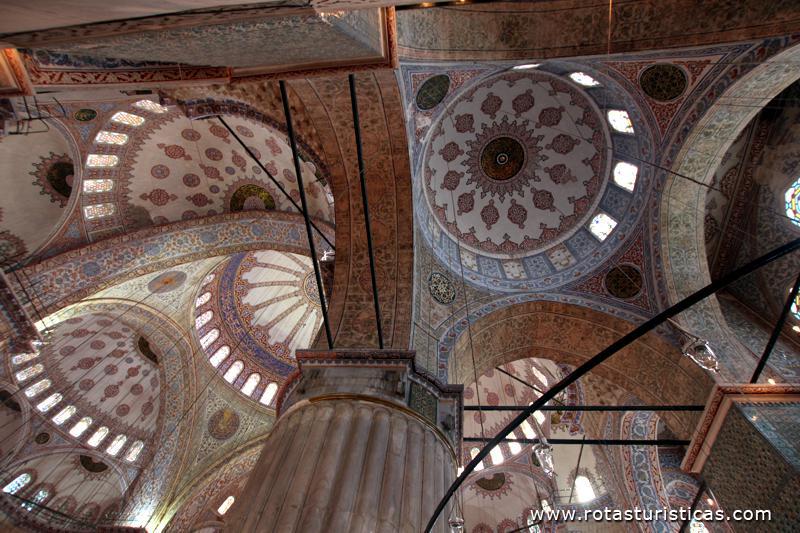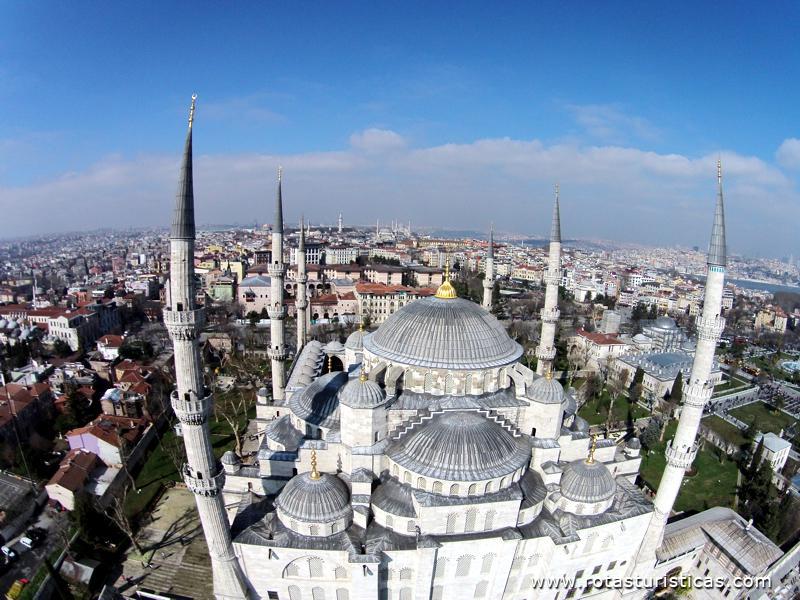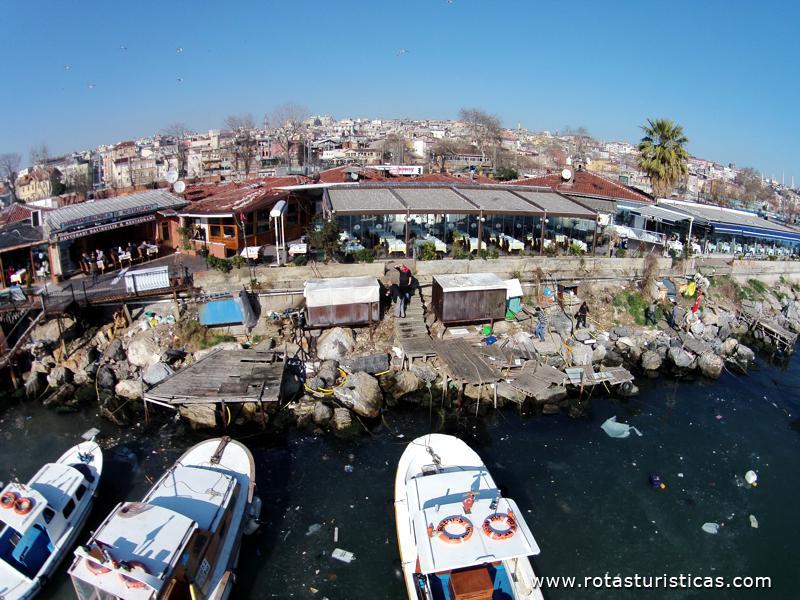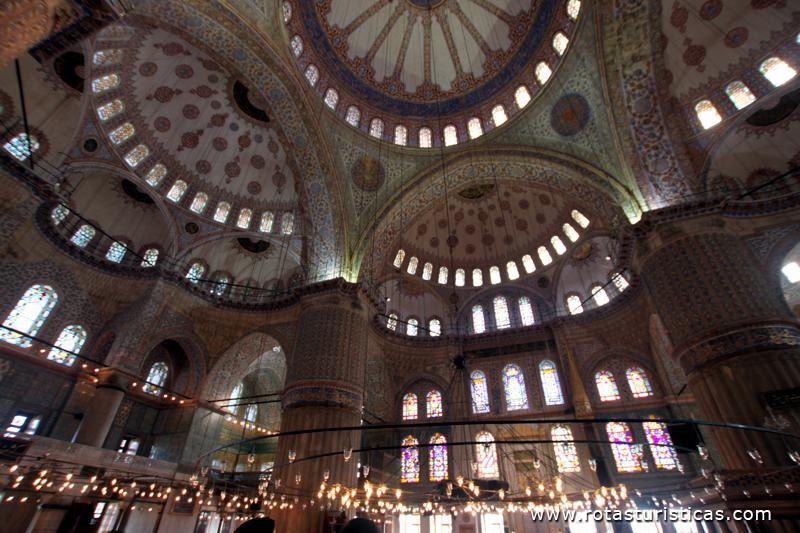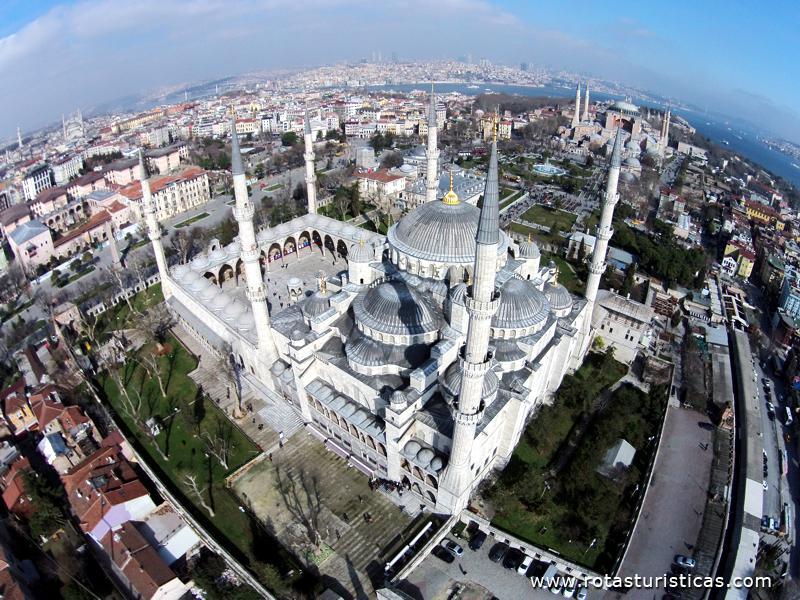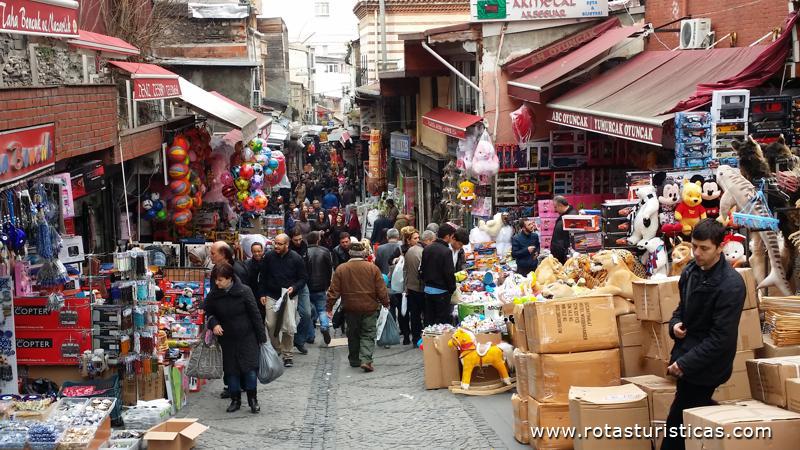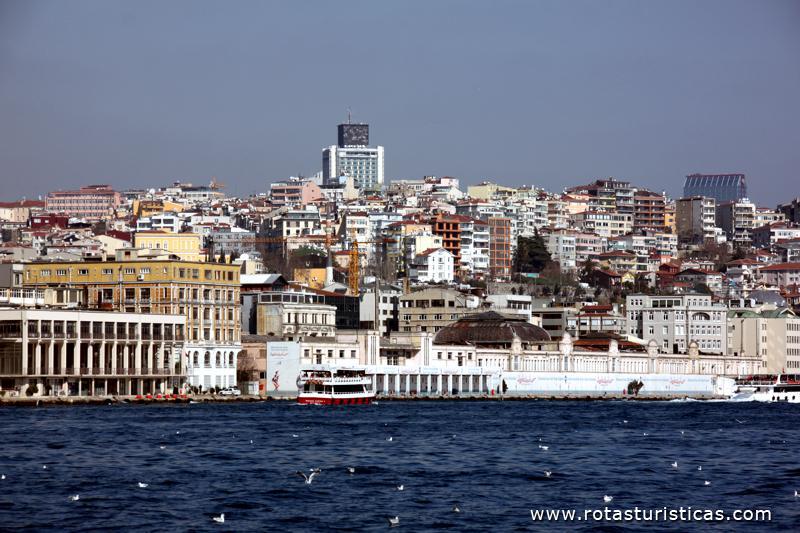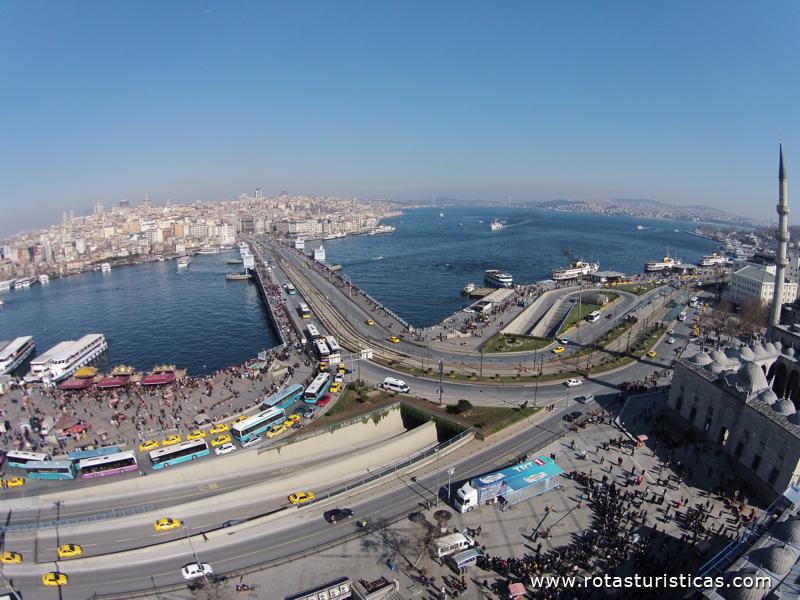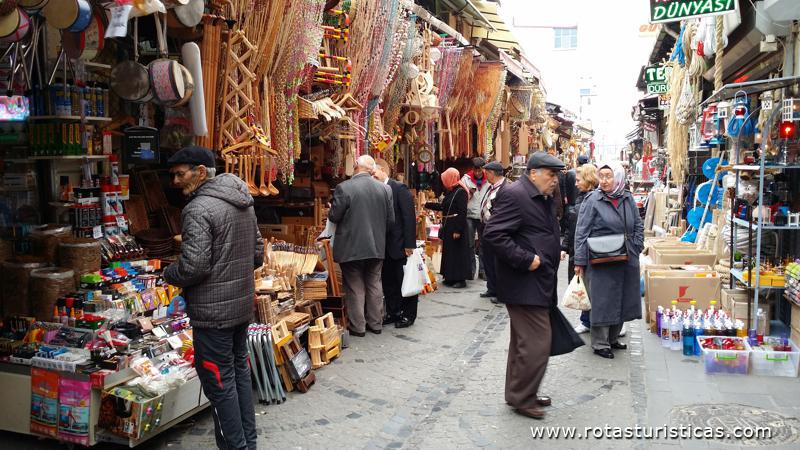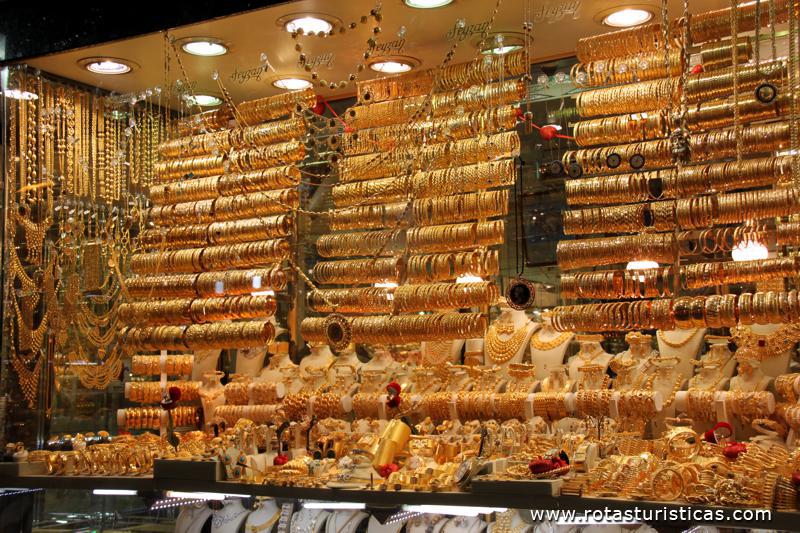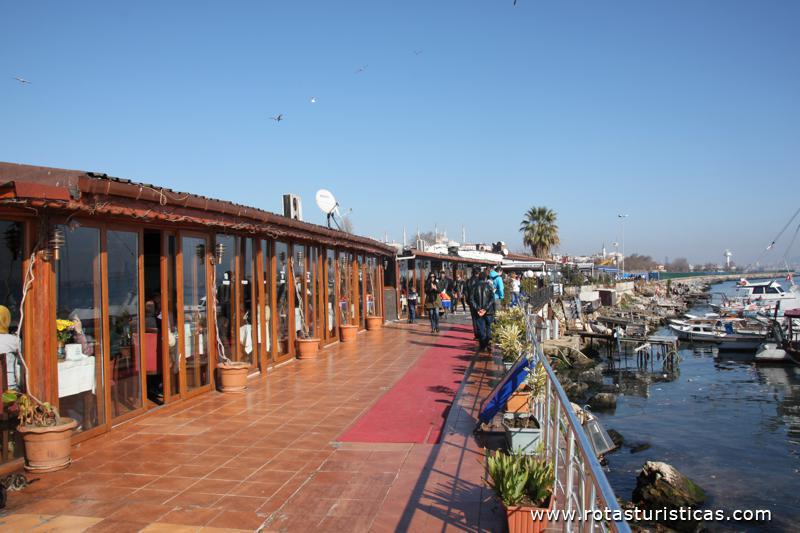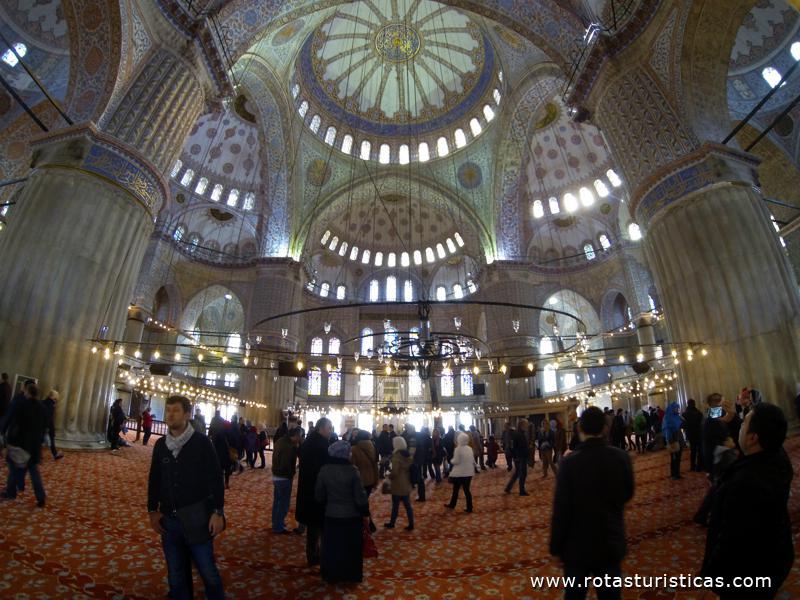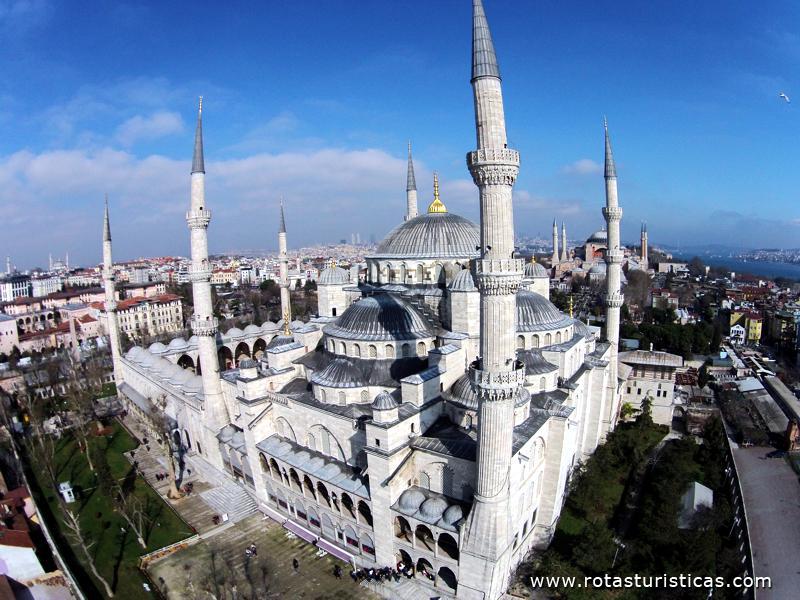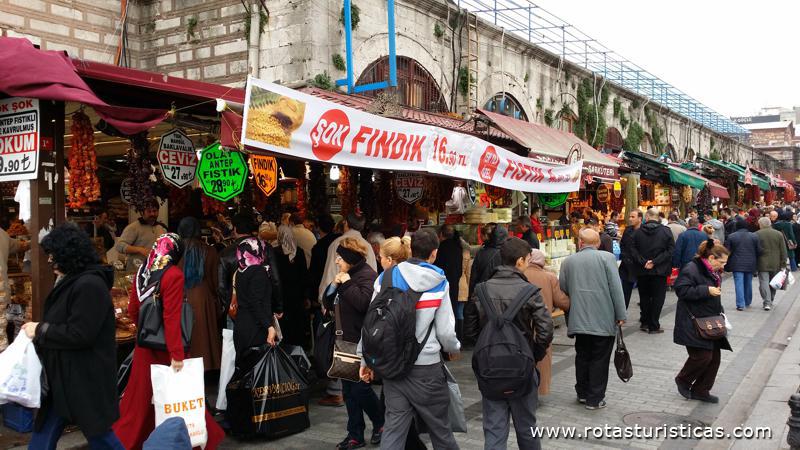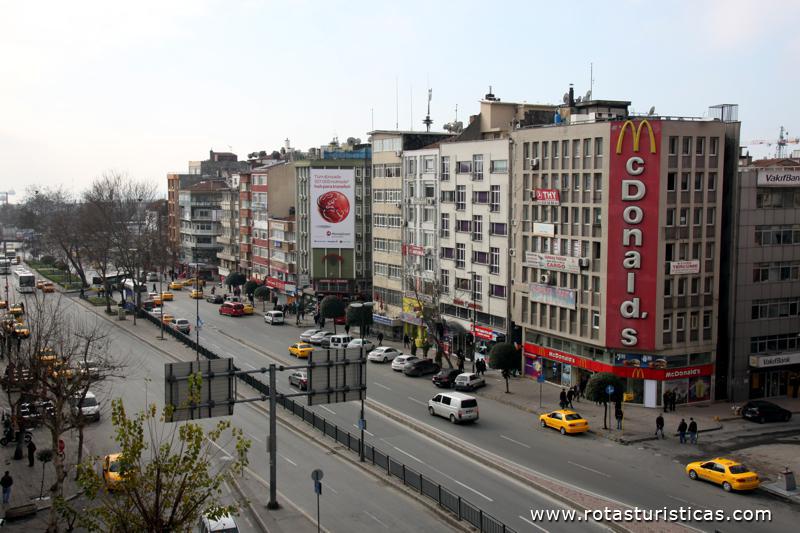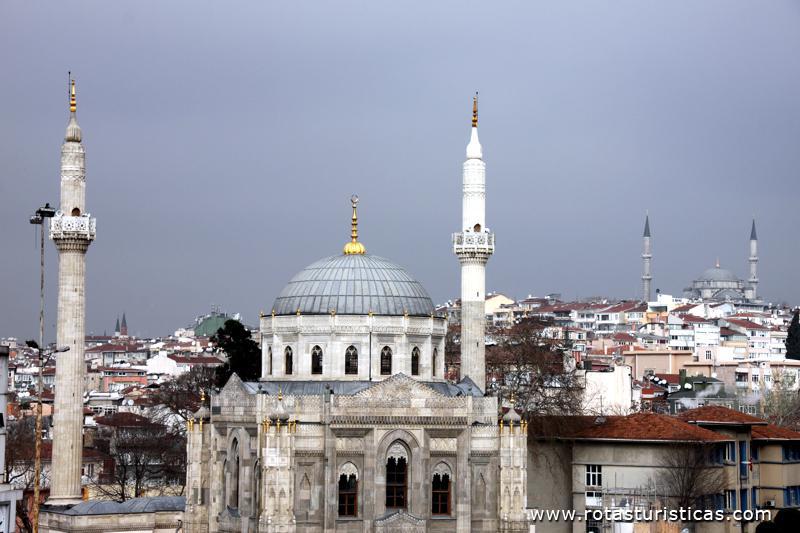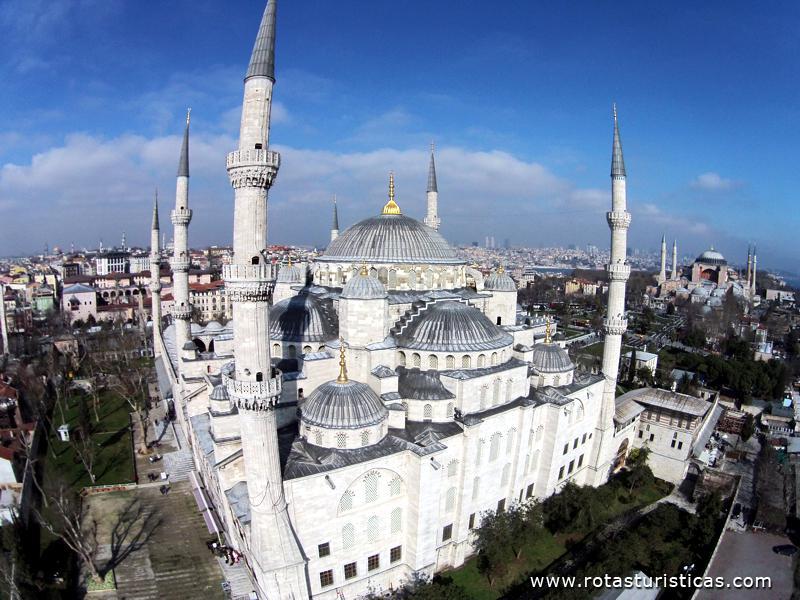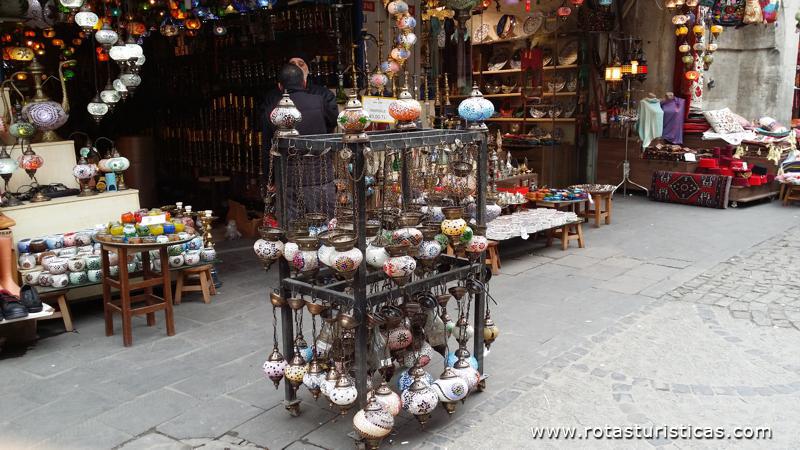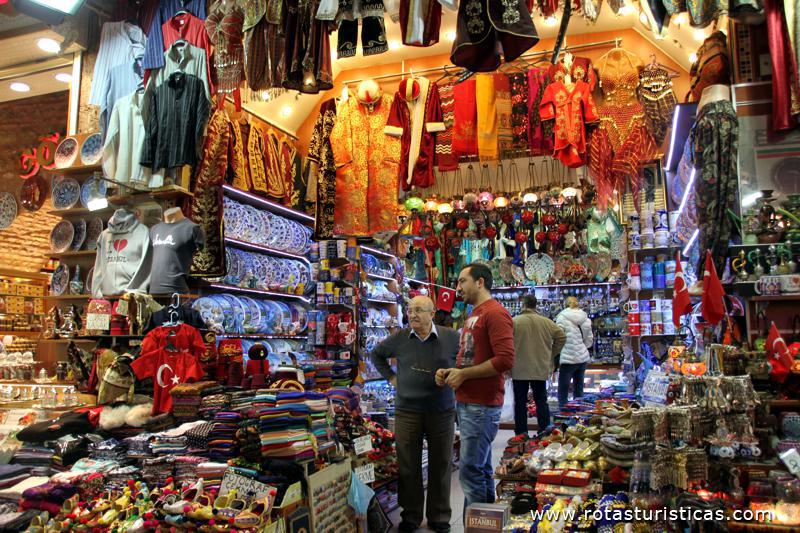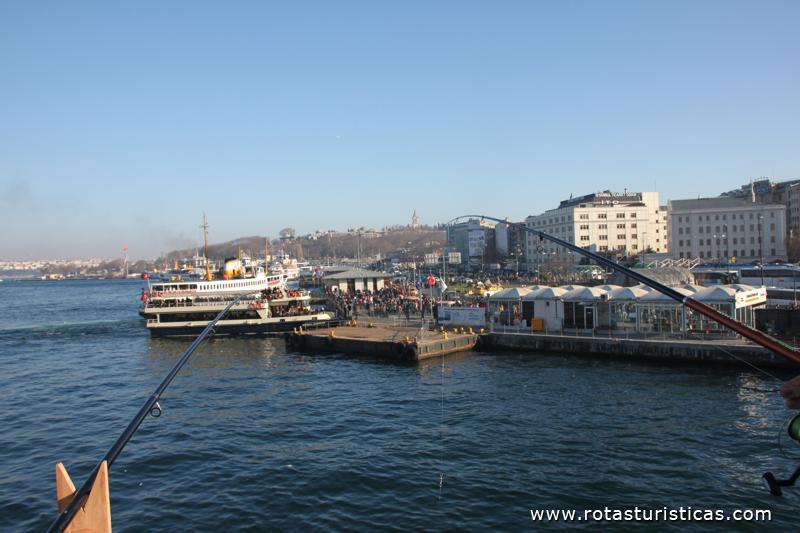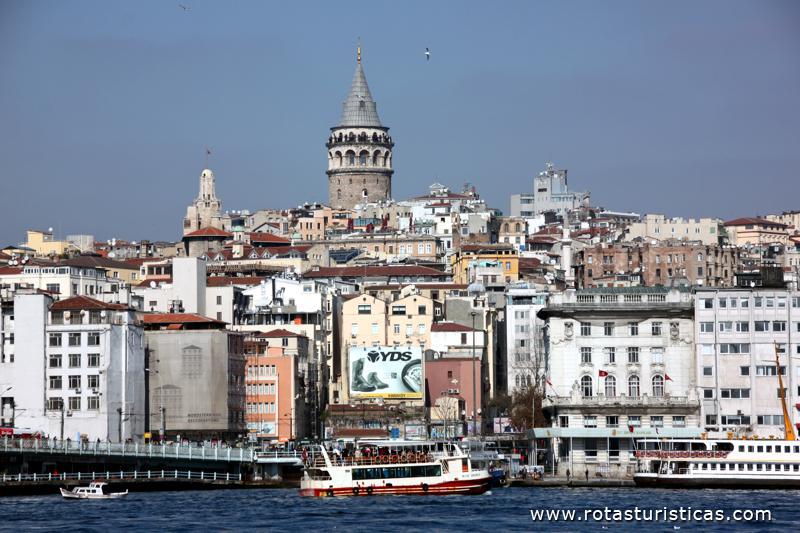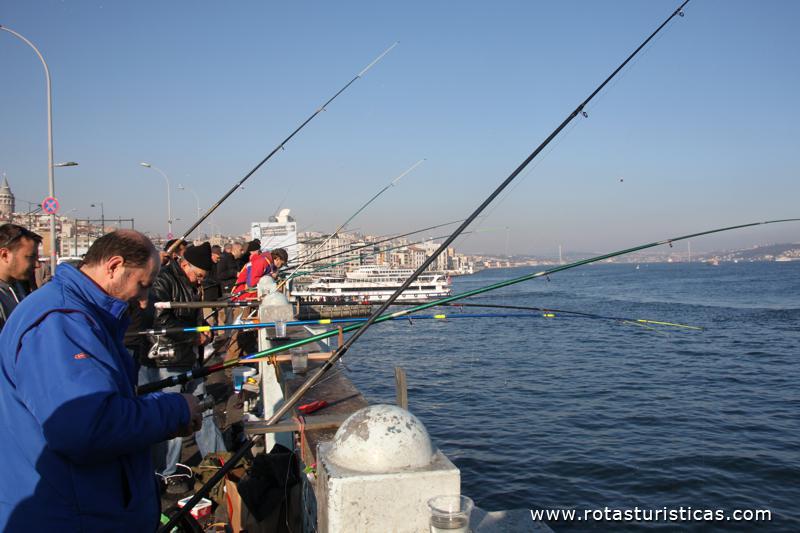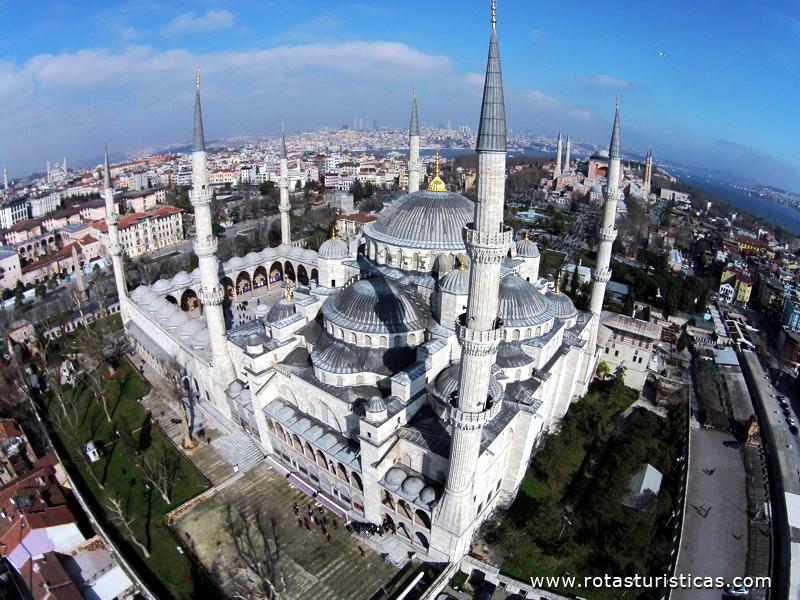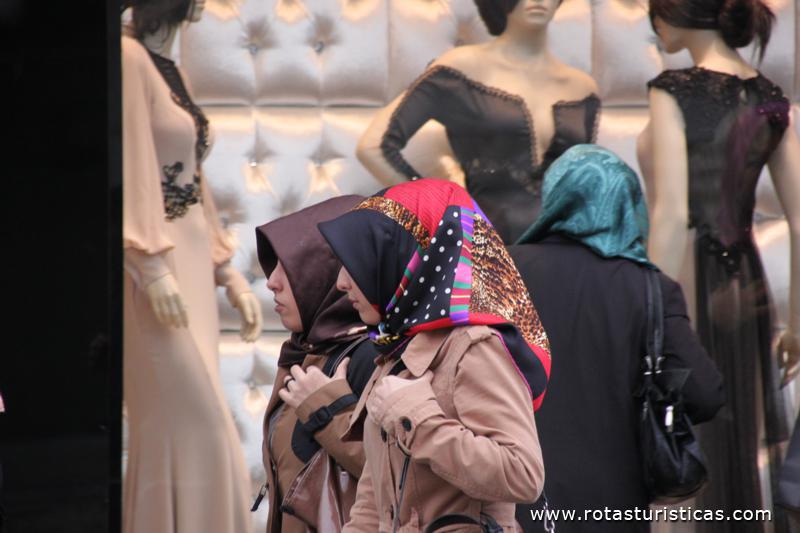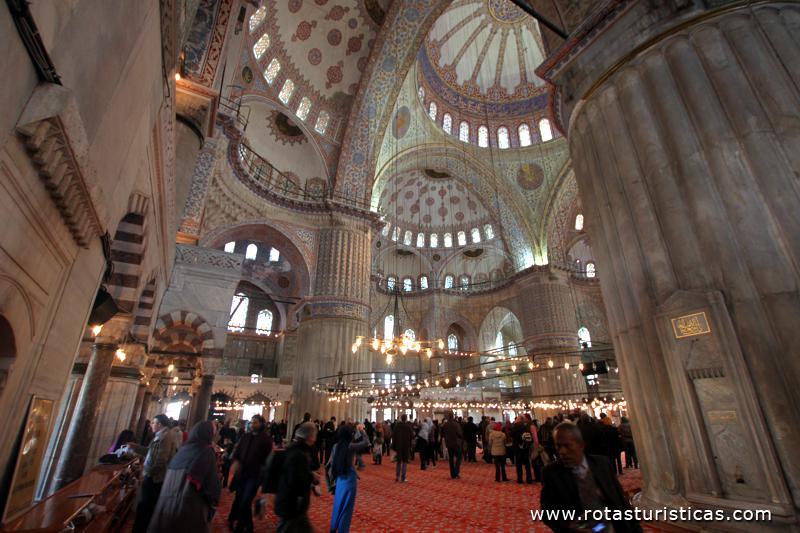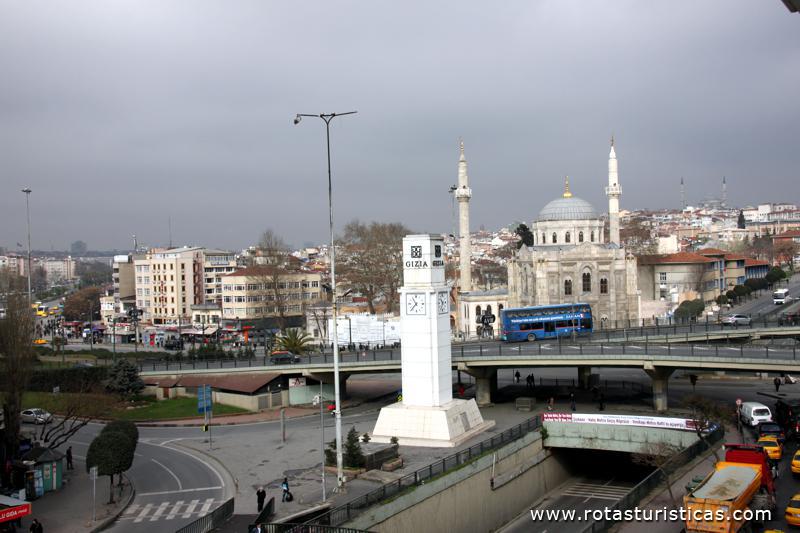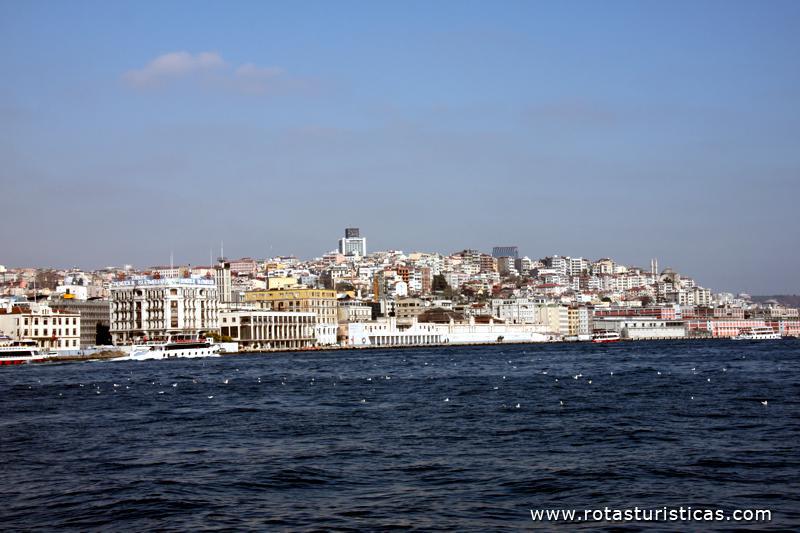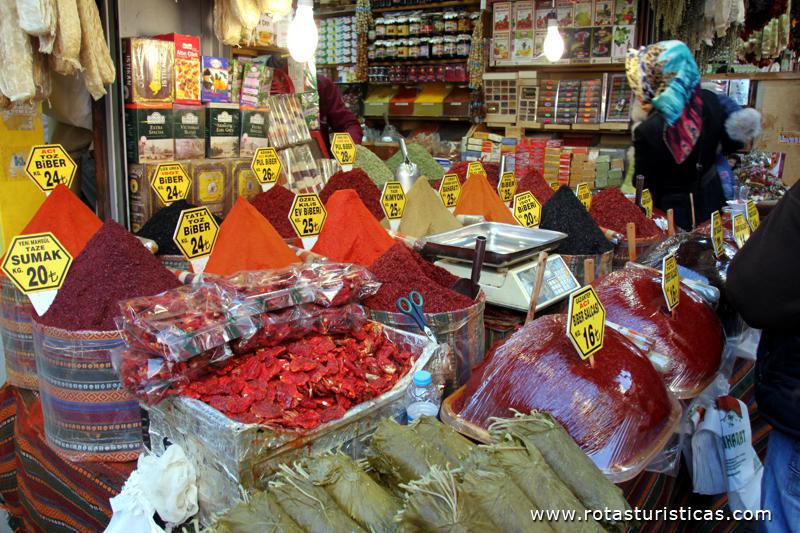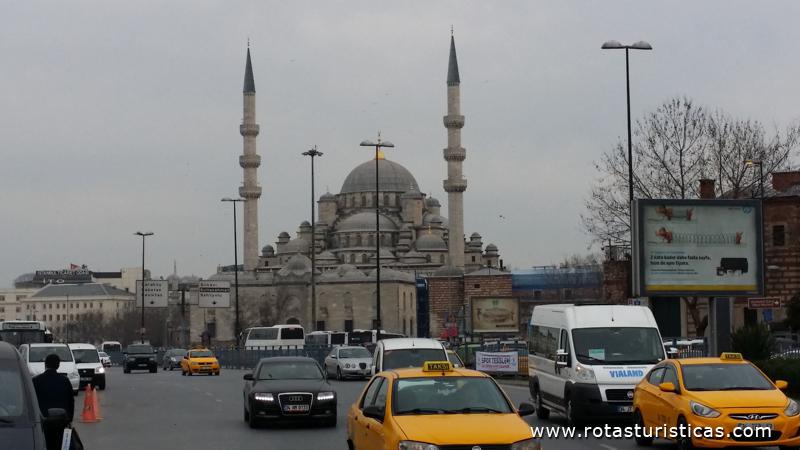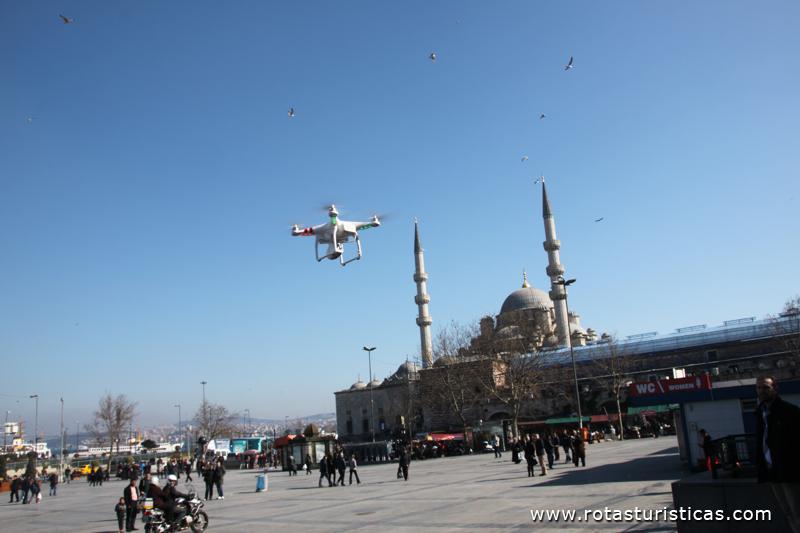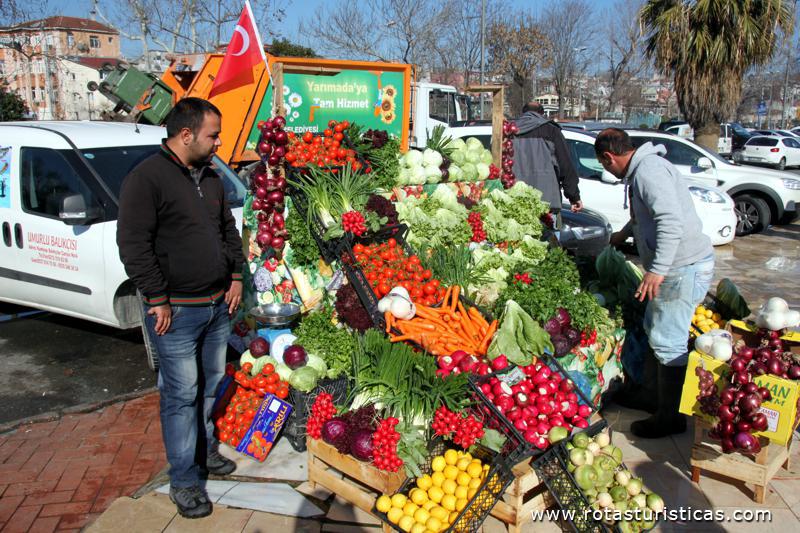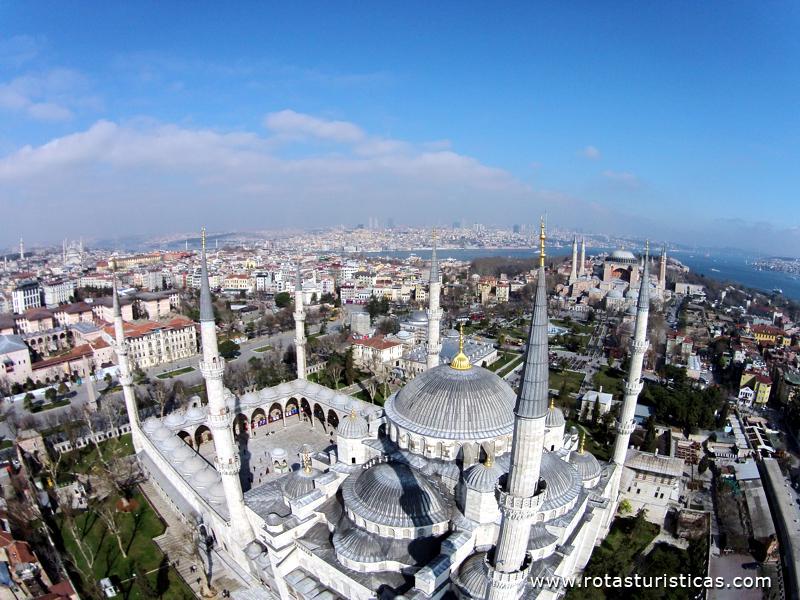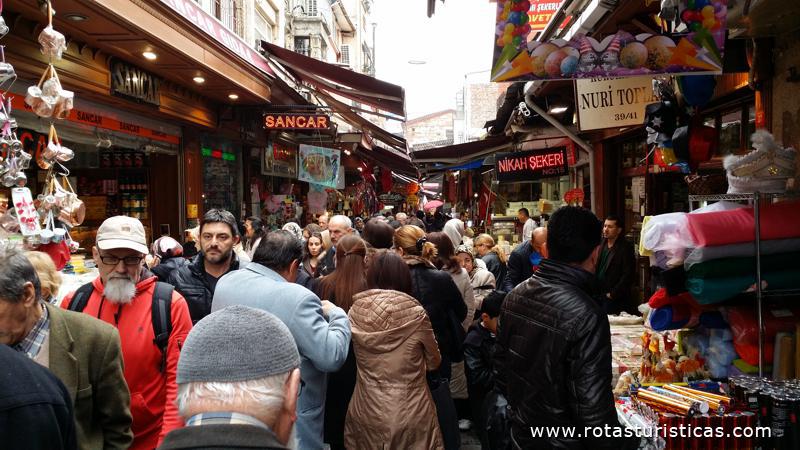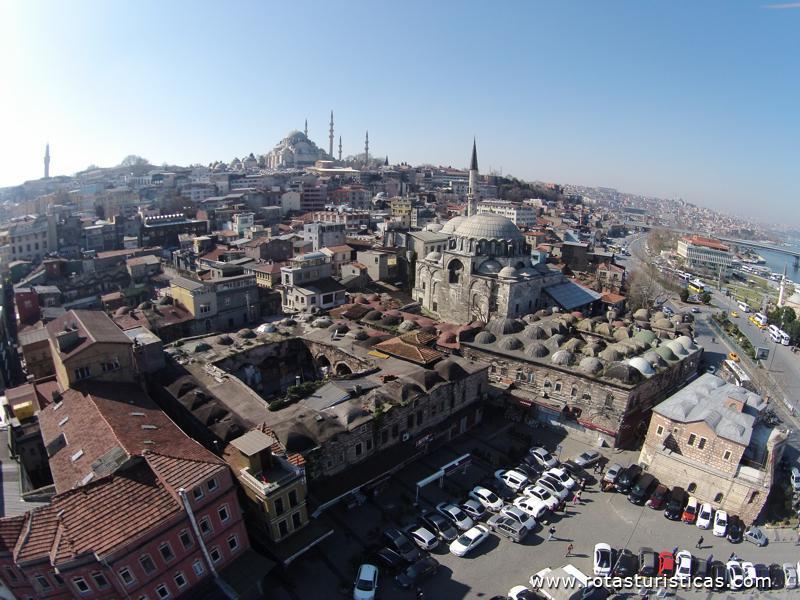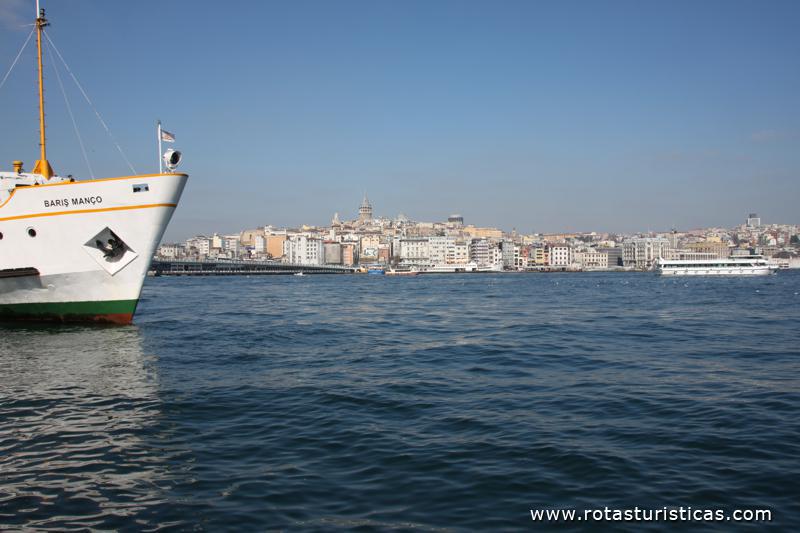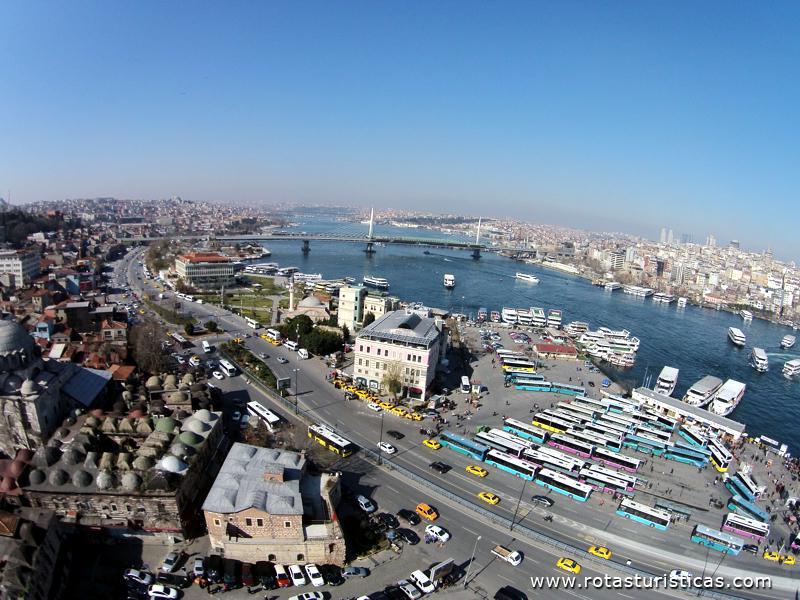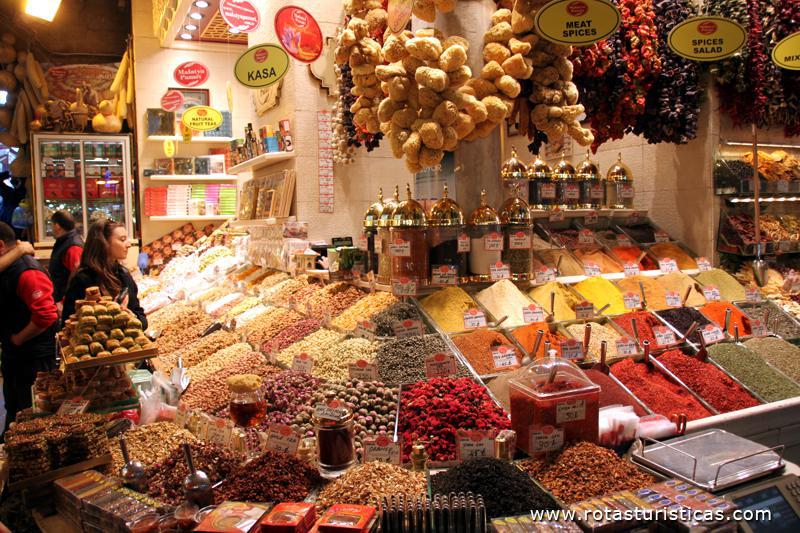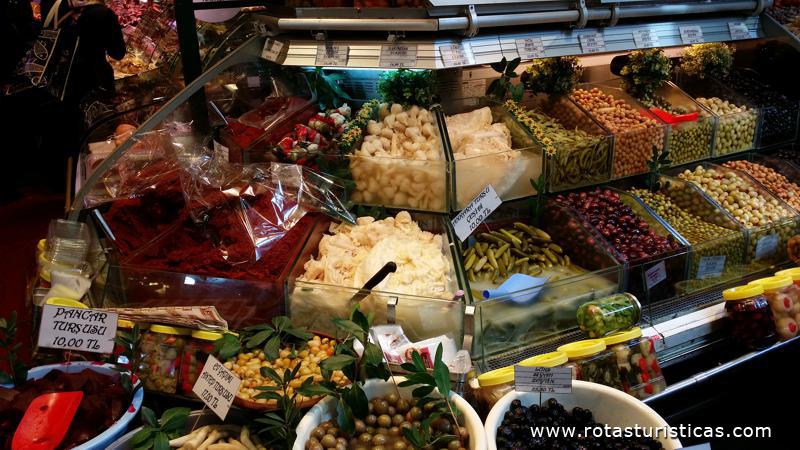Pictures of: Istanbul
Location map
Airports
Hotels and other Accommodation
What to visit
Consulates & Embassies
World Nomads
The Travel Insurance with the largest coverage

The Travel Insurance with the largest coverage

Presentation
On the shores of the Bosphorus Strait, which separates Europe from Asia, Istanbul has one foot in the east and one in the west - literally.
On the one hand, the call to prayers emanating from the mosques and the veiled women guarantee the exoticism expected from Turkey's largest city. On the other, a modern metropolis inhabited by 13 million people, in a progressive Islamic nation and increasingly aligned with the European Union (even though the most conservative strands of the city are always militating in the opposite direction).
It is the largest city in Turkey and the fourth largest in the world, rivaling London as the most populous in Europe with over 15 000 000 inhabitants in its metropolitan area.
The city has also been dubbed the "City of Seven Hills" as Cape Serralho, the peninsula where the oldest part of the city is located, has seven hills, such as Rome. At the top of each of the hills is a large Ottoman imperial mosque. The hills are represented on the emblem of the city as seven triangles, on which rise four minarets. The city has many other nicknames, such as Vasilevousa Polis ("Queen of Cities" in Greek), which derives from the importance and wealth of the city during the Middle Ages, and Dersaâdet (originally Der-i Saadet, "Door to Happiness ") that was first used in the late 19th century and is still used today.
Istanbul is located in northwestern Turkey in the Marmara Region (Marmara Bölgesi) and is the capital of the province of Istanbul.
On the one hand, the call to prayers emanating from the mosques and the veiled women guarantee the exoticism expected from Turkey's largest city. On the other, a modern metropolis inhabited by 13 million people, in a progressive Islamic nation and increasingly aligned with the European Union (even though the most conservative strands of the city are always militating in the opposite direction).
It is the largest city in Turkey and the fourth largest in the world, rivaling London as the most populous in Europe with over 15 000 000 inhabitants in its metropolitan area.
The city has also been dubbed the "City of Seven Hills" as Cape Serralho, the peninsula where the oldest part of the city is located, has seven hills, such as Rome. At the top of each of the hills is a large Ottoman imperial mosque. The hills are represented on the emblem of the city as seven triangles, on which rise four minarets. The city has many other nicknames, such as Vasilevousa Polis ("Queen of Cities" in Greek), which derives from the importance and wealth of the city during the Middle Ages, and Dersaâdet (originally Der-i Saadet, "Door to Happiness ") that was first used in the late 19th century and is still used today.
Istanbul is located in northwestern Turkey in the Marmara Region (Marmara Bölgesi) and is the capital of the province of Istanbul.
Tourist points
Istanbul is one of the most visited cities in the world and it is impossible not to be attracted by the city that was the capital of three empires: Roman, Byzantine and Ottoman and the history of ancient Constantinople and its natural landscapes. Istanbul is Turkey's largest city. No visitor will be indifferent to the contrasts of a city too eastern to be European and too western to be Asian.
Visiting Hagia Sophia and the Blue Mosque, navigating the Bosphorus by boat, shopping at the Grand Bazaar and seeing the reflection of the utmost splendor of the Ottoman Empire at Topkapi Palace is something every tourist has ever longed for.
Most of the city's tourist attractions are located in the historic center of Sultanahmet, where many tourists prefer to stay. Another popular area is Beyoglu district, considered one of the best examples of modern Istanbul. Hagia Sophia, once the largest church in the Byzantine Empire, later transformed into a mosque by the Ottomans and is now a great museum and one of Turkey's greatest symbols. The Basilica Cistern, which formerly stored the water supplying the Grand Palace and nearby buildings. The beautiful Blue Mosque, another symbol of Istanbul. Its original name is Sultanahmet Mosque, but it is popularly known as Blue Mosque as it is covered by over 20,000 blue tiles.
You can visit other Sultanahmet attractions, such as the Grand Palace Mosaic Museum, the Arasta Bazaar, the Turkish and Islamic Art Museum, among others. Topkapi Palace, a huge and beautiful palace that for centuries served as a residence for the sultans. The Palace Harem, which served as a residence for the imperial family, where the Sultan could be more comfortable with his wives and his concubines. The Istanbul Archaeological Museums, a complex that houses three different museums housed in historic buildings located on the same grounds: the Archaeological Museum, the Museum of Oriental Antiquities and the Enamelled Kiosk Museum.
Venture through the aisles and shops of the Grand Bazaar, one of the largest and oldest covered markets in the world, with over 60 streets and about 5,000 stores.
The list of sights to visit is endless and we suggest that you organize your holidays carefully so as not to miss the opportunity to visit them when you visit this mystical city!
If you want to stroll at night, one of the most recommended places is Istiklal Avenue. Shops are open late, there are many dining options and many bars and pubs become nightclubs that liven up the city's nights.
Visiting Hagia Sophia and the Blue Mosque, navigating the Bosphorus by boat, shopping at the Grand Bazaar and seeing the reflection of the utmost splendor of the Ottoman Empire at Topkapi Palace is something every tourist has ever longed for.
Most of the city's tourist attractions are located in the historic center of Sultanahmet, where many tourists prefer to stay. Another popular area is Beyoglu district, considered one of the best examples of modern Istanbul. Hagia Sophia, once the largest church in the Byzantine Empire, later transformed into a mosque by the Ottomans and is now a great museum and one of Turkey's greatest symbols. The Basilica Cistern, which formerly stored the water supplying the Grand Palace and nearby buildings. The beautiful Blue Mosque, another symbol of Istanbul. Its original name is Sultanahmet Mosque, but it is popularly known as Blue Mosque as it is covered by over 20,000 blue tiles.
You can visit other Sultanahmet attractions, such as the Grand Palace Mosaic Museum, the Arasta Bazaar, the Turkish and Islamic Art Museum, among others. Topkapi Palace, a huge and beautiful palace that for centuries served as a residence for the sultans. The Palace Harem, which served as a residence for the imperial family, where the Sultan could be more comfortable with his wives and his concubines. The Istanbul Archaeological Museums, a complex that houses three different museums housed in historic buildings located on the same grounds: the Archaeological Museum, the Museum of Oriental Antiquities and the Enamelled Kiosk Museum.
Venture through the aisles and shops of the Grand Bazaar, one of the largest and oldest covered markets in the world, with over 60 streets and about 5,000 stores.
The list of sights to visit is endless and we suggest that you organize your holidays carefully so as not to miss the opportunity to visit them when you visit this mystical city!
If you want to stroll at night, one of the most recommended places is Istiklal Avenue. Shops are open late, there are many dining options and many bars and pubs become nightclubs that liven up the city's nights.
Gastronomy
Although Istanbul's location between two seas makes fish dominate much of the menu, meat is the star dish of all of Turkey and has undoubtedly heard of Kebab.
Typical dishes of Istanbul
- Testi Kebab: This is undoubtedly one of the most curious dishes in Istanbul. It is a kind of braised beef served in a ceramic container that breaks to serve.
- Honey chicken: one of the most delicious dishes of Turkish cuisine.
- Lüfer: If you want to taste the typical fish, Bosphorus blue fish is the right option.
In addition to tea, which is undoubtedly the great star of the Arab countries (don't forget to try apple tea), in Istanbul there are several drinks to try.
Ayran: It is a very popular drink among Turks and is served everywhere. It is made of yogurt, water and salt.
Rakı: Raki is a Turkish anise that is usually drunk with dinner. In some places it is served in two glasses, one that mixes Raki and water and another only with water. The traditional way of taking it is very cold and alternating cups.
Efes Beer: Efes is the most important beer brand (bira) in Turkey.
Kahve (Turkish Coffee): It has the peculiarity that the sugar is placed at the time of making it and not when ready, so be sure to say how you want it: sade (no sugar), orta (standard) or Sekerli (sweet) ).
There are two characteristic desserts: baklava and Turkish delights.
Baklava: Sweets made with ground nuts (usually nuts), filo pastry and syrup of honey or syrup. They are usually covered with pistachios, chocolate or condiments.
Turkish Delights (lokum): It is a Turkish sweet made of sugar that is flavored with rose water or lemon. The texture is a bit gelatinous.
Typical dishes of Istanbul
- Testi Kebab: This is undoubtedly one of the most curious dishes in Istanbul. It is a kind of braised beef served in a ceramic container that breaks to serve.
- Honey chicken: one of the most delicious dishes of Turkish cuisine.
- Lüfer: If you want to taste the typical fish, Bosphorus blue fish is the right option.
In addition to tea, which is undoubtedly the great star of the Arab countries (don't forget to try apple tea), in Istanbul there are several drinks to try.
Ayran: It is a very popular drink among Turks and is served everywhere. It is made of yogurt, water and salt.
Rakı: Raki is a Turkish anise that is usually drunk with dinner. In some places it is served in two glasses, one that mixes Raki and water and another only with water. The traditional way of taking it is very cold and alternating cups.
Efes Beer: Efes is the most important beer brand (bira) in Turkey.
Kahve (Turkish Coffee): It has the peculiarity that the sugar is placed at the time of making it and not when ready, so be sure to say how you want it: sade (no sugar), orta (standard) or Sekerli (sweet) ).
There are two characteristic desserts: baklava and Turkish delights.
Baklava: Sweets made with ground nuts (usually nuts), filo pastry and syrup of honey or syrup. They are usually covered with pistachios, chocolate or condiments.
Turkish Delights (lokum): It is a Turkish sweet made of sugar that is flavored with rose water or lemon. The texture is a bit gelatinous.
Weather
In Istanbul, summer is warm, humid, dry and cloudless. Winter is long, cool, high winds and partly overcast. Throughout the year, the temperature generally ranges from 4 ° C to 29 ° C and is rarely below -1 ° C or above 32 ° C.
The best time of year to visit Istanbul and warm weather activities is from late June to late August.
The best time of year to visit Istanbul and warm weather activities is from late June to late August.
Security
There is a significant terrorist threat in Turkey. The likelihood of events of this nature occurring is still high. High-security measures to combat terrorism have been adopted throughout the country. Always be aware of the surrounding environment, particularly when in close proximity to military and security facilities, and in areas with a high concentration of passers-by, such as hotels, shops, outdoor bazaars, public places, tourist areas and public transport network. . Avoid crowds and demonstrations of any kind.
Maintain a high degree of vigilance, especially in Istanbul's main tourist areas. Avoid all demonstrations, especially at Taksim Square, as even peaceful gatherings can degenerate into violent incidents and clashes with security forces.
Emergency Contact Numbers:
- Police: 155;
- Medical Emergency: 112;
- Fire brigade: 110;
- Police in rural areas (jandarma): 156.
Maintain a high degree of vigilance, especially in Istanbul's main tourist areas. Avoid all demonstrations, especially at Taksim Square, as even peaceful gatherings can degenerate into violent incidents and clashes with security forces.
Emergency Contact Numbers:
- Police: 155;
- Medical Emergency: 112;
- Fire brigade: 110;
- Police in rural areas (jandarma): 156.
Travel documents
Documents required to enter Turkey:
Nationals traveling to Turkey must have at least one of the following three documents:
- Official Passport
- Common / Ordinary Passport
- Citizen Card
How to get visa?
1. Citizens wishing to travel to Turkey for tourism may obtain their visa through the e-Visa electronic system (www.evisa.gov.tr).
This system allows you to obtain an electronic visa within minutes. You will only have to go to www.evisa.gov.tr and provide the requested information. Once the order has been approved, payment must be made online. The e-Visa is then sent to the traveller's email address.
Important Note: The only official website to apply for e-Visa is: https://www.evisa.gov.tr
Nationals traveling to Turkey must have at least one of the following three documents:
- Official Passport
- Common / Ordinary Passport
- Citizen Card
How to get visa?
1. Citizens wishing to travel to Turkey for tourism may obtain their visa through the e-Visa electronic system (www.evisa.gov.tr).
This system allows you to obtain an electronic visa within minutes. You will only have to go to www.evisa.gov.tr and provide the requested information. Once the order has been approved, payment must be made online. The e-Visa is then sent to the traveller's email address.
Important Note: The only official website to apply for e-Visa is: https://www.evisa.gov.tr
Health and vaccination
There is no requirement for preventive vaccination to enter Turkey.
Due to the recent polio epidemic that has affected some countries, notably Afghanistan, India, Pakistan, Nigeria and Tajikistan, all travelers traveling to those countries via Turkey may be required to have proof of vaccination against such a polio. disease.
The sanitary network still has some deficiencies, especially in the Anatolian plateau. Its quality is reasonable in the main tourist centers. It is advisable to consume bottled water. Underwriting of an insurance policy with a foreign insurance company is required to cover, if necessary, medical expenses, including hospitalization and medical repatriation.
Due to the recent polio epidemic that has affected some countries, notably Afghanistan, India, Pakistan, Nigeria and Tajikistan, all travelers traveling to those countries via Turkey may be required to have proof of vaccination against such a polio. disease.
The sanitary network still has some deficiencies, especially in the Anatolian plateau. Its quality is reasonable in the main tourist centers. It is advisable to consume bottled water. Underwriting of an insurance policy with a foreign insurance company is required to cover, if necessary, medical expenses, including hospitalization and medical repatriation.
Local currency
Local Currency: Turkish Lira.
Official language
The official language is Turkish.
Other tourist destinations in:
Turkey
Turkey
Other world tourist destinations
Why to book with TURISMO & VIAGENS
The best prices
Our partnerships with the world´s largest operators offer research on the best market prices.
More options
At Rotas Turisticos you can book the hotel, buy the air ticket, book the transfer from the airport to the hotel and vice versa, book the local excursions, rent the car, take travel insurance and consult the places to visit and where to go.
Holiday Tips & Destinations
Hundreds of holiday destinations with all the options that allow you to easily choose the destination that best suits your dream vacation.
TURISMO & VIAGENS
Links

